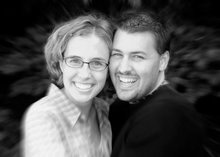For one of my classes this semester I was asked to do a project that helps lead people in transformation. I love movies, and I believe there are some incredibly transforming moments in film. So for my project I chose to write reflection questions for a few of the films that have been most influential in my life. I would like to invite you to participate with me in this project.
There are three movies involved in this reflection, Unbreakable, The Incredibles, and Braveheart. The intention is for them to work together. Ideally you would watch and engage in all three of the movies and reviews over the next couple weeks, but if you are crunched for time you could certainly engage in one or two of the films. You can do it alone or as a group, but however you do it engage with your whole heart. When you have finished, please leave a response on the blog. This will allow me to use your responses as a part of the project. If you are nervous about putting yourself out there, you can leave an anonymous response.
Wednesday, November 21, 2007
A Community Called Atonement by Scot McKnight (Part 1)
I’d like to engage a bit in McKnight’s definition of atonement. McKnight says atonement is “God’s act of resolving sin and bringing humans back home to their relationship with God, with self, with others, and with the world.” (36) There are four relationships that are restored in atonement, a person with God, self, others, and the world. McKnight may not like this, but I think I would demonstrate this view of atonement as a three-tiered cake. The bottom tier is a restored relationship with God, the second is a restored relationship with self, and the third is restored relationships with others and the world. (If I am honest I am still unsure how the relationship with the world fits.) The restored relationship with God is the foundation. None of the other relationships can be restored beyond the extent that our relationship with God has been restored. In other words my relationship with self can only be restored to the extent that my relationship with God has, and my relationship with others can only be restored to the extent that my relationship with self has been restored.

No comments:
Post a Comment